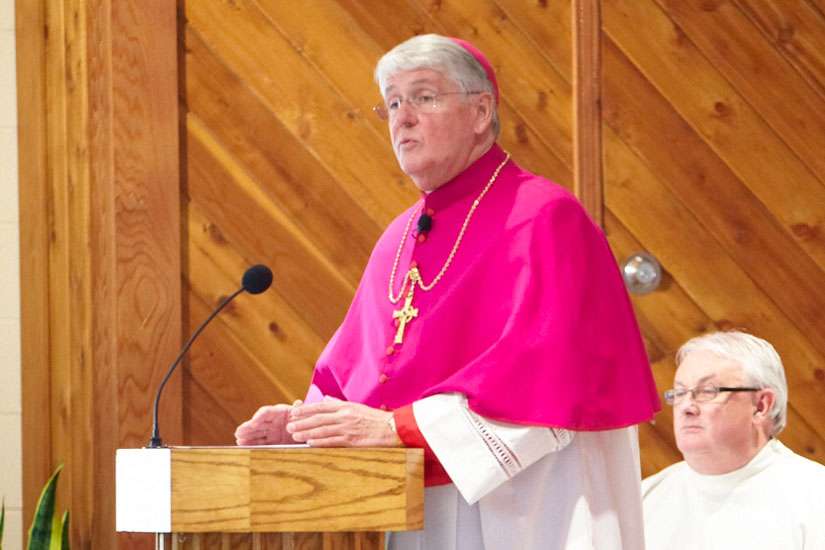In a release from Ottawa Oct. 12, the bishops said: “The way Kairos is structured, while perfectly legitimate, does not foster the kind of engagement they (the Catholic bishops) need and require.”
The Canadian Catholic Organization for Development and Peace and the Canadian Religious Conference, representing both male and female Catholic religious orders, remain members of the Kairos coalition. Canada’s Anglicans and six Protestant Churches also remain as members.
CCCB president Bishop Doug Crosby said he hoped Kairos and the bishops would continue to exchange information and consider occasional co-operation on social justice projects.
“The CCCB remains committed to working ecumenically on justice and peace initiatives which are in keeping with fundamental principles of ecumenism,” said the CCCB release.
Kairos’s present activities cover climate change, reconciliation with Canada’s aboriginal people, violence against women and the plight of migrants.
Kairos was formed by the merger of 10 interchurch coalitions which dedicated themselves to social justice in response to dictatorships and civil war in Latin America in the 1970s, apartheid in South Africa through the 1980s, Canadian poverty, economic development in Asia and Africa and socially responsible investment issues. Since the 10 organizations were brought under the banner of Kairos Canada in 2001, the organization has faced a series of funding issues as many of its church partners dealt with shrinking revenues and budgets.
Kairos made headlines in 2009 when then Minister of International Development Bev Oda cut all federal government funding for the small portfolio of international development projects Kairos managed at the time. Oda never admitted that it was she who wrote the word “not” on a CIDA funding agreement which had been approved by CIDA staff, but she later apologized to Parliament for ordering a Canadian International Development Agency document altered to deny funding.
Then-Immigration Minister Jason Kenney had told an Israeli audience the Canadian government cut Kairos’s funding because the organization had advocated for boycotts and divestments of Israeli companies with operations in the occupied Palestinian territories. Kairos and its church members had in fact specifically ruled out boycotts and other sanctions against Israel in a 2007 vote. The Conservative government’s line in 2010 became that Kairos international programing did not fall into line with new international development funding priorities, but senior bureaucrats responsible for administering development aid funding had approved the agreement.
The ensuing controversy briefly bouyed Kairos’s funding and profile with hundreds of small donations and new memberships.
(Updated 17:08 Oct. 12, 2016)

